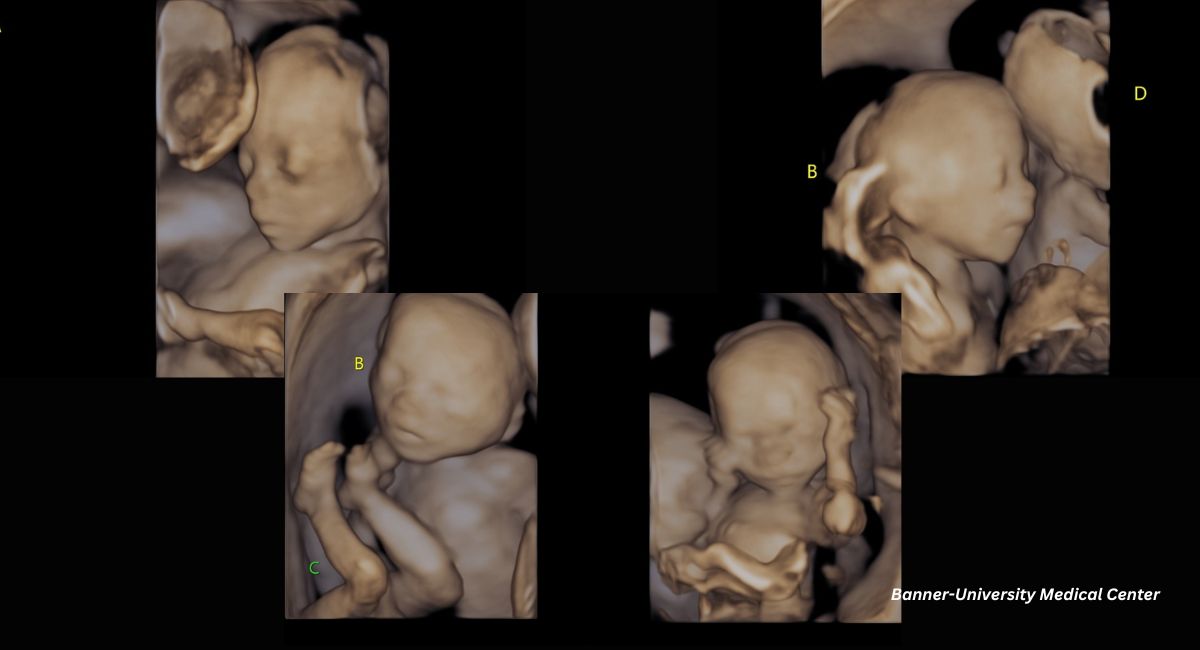Rachel and Marco Vargas recently welcomed spontaneously conceived identical quadruplets — a miracle that only happens in about one in 40 million births, according to their doctor.
The Rhode Island couple’s journey began in 2024 when they discovered they were expecting quadruplets — all identical girls. While they celebrated the pregnancy as a miraculous blessing, it also came with significant medical risks.
Two of the girls were diagnosed with twin-to-twin transfusion syndrome, or TTS, a dangerous condition where uneven blood flow between twins can result in one twin receiving too much blood, while the other receives too little. In addition, one of the babies was diagnosed with a congenital malformation. Throughout the pregnancy, Rachel and Marco faced the heart-wrenching uncertainty that every parent dreads: whether all of their daughters would survive.
Despite the significant risks, the Vargas family remained steadfast in their commitment to protecting the lives of their babies.
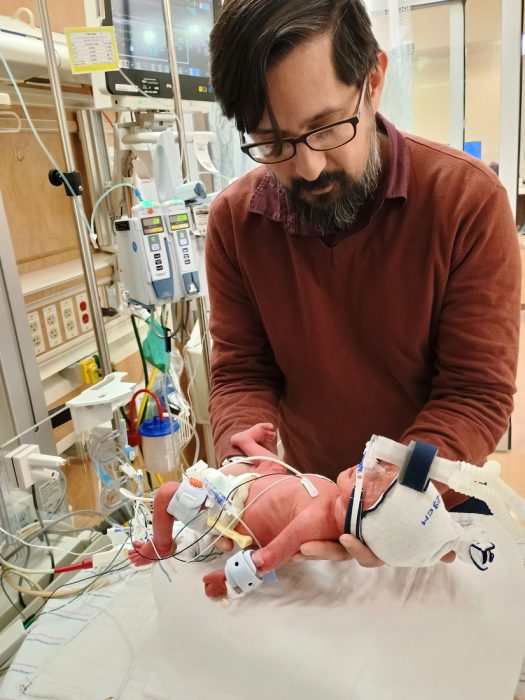
Courtesy of Banner-University Medical Center
Seeking specialized care, they turned to the Twin to Twin Transfusion Syndrome Foundation, which connected them with Dr. John Elliott, a globally recognized expert in high-order multiple pregnancies at Valley Perinatal Services in Phoenix, Arizona. Dr. Elliott helped navigate the complex medical challenges of carrying quadruplets. Without hesitation, the couple relocated to Phoenix when Rachel was 21 weeks pregnant, and by 23 weeks, she was admitted to Banner University Medical Center for pre-term labor.
Rachel spent much of her pregnancy on strict bed rest, uncertain of what the outcome might be, but never ceased to acknowledge her girls as a blessing. “In a lot of ways, we feel more blessed than we expected to be,” Rachel told 12 News Phoenix.
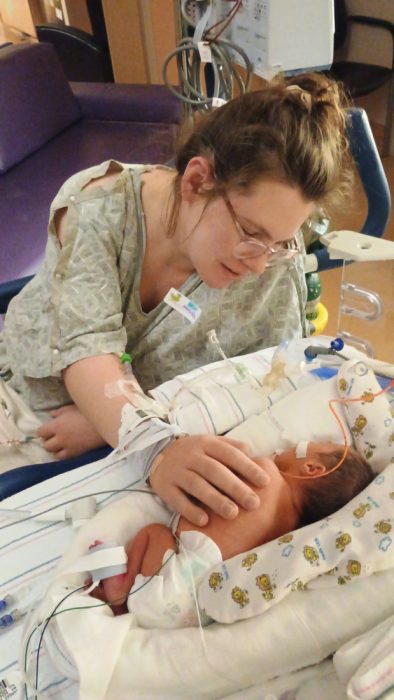
Courtesy Banner-University Medical Center
READ: Home from prison, Bevelyn Williams urges pro-life movement to ‘start banding together’
Marco echoed her sentiment. He acknowledged the financial challenge of having quadruplets, which prompted him to play the lottery. “Yes, obviously I didn’t win but I did win the lottery,” he said, touching his wife’s arm.
On January 24, at 30 weeks, Rachel gave birth to four healthy girls via cesarean section. Sofía, Philomena, Veronica, and Isabel each weighed around three pounds—much larger and healthier than expected.
“The outlook when I first started to care for Rachel was quite grim,” Dr. Elliott said in the press release. “Despite the odds that we were facing, the combination of our highly-trained medical personnel and the family’s positive attitude helped lead to this excellent outcome.”
The newborns will remain in the neonatal intensive care unit, or NICU, for monitoring until ready for discharge, which could be April 1. Rachel and Marco’s older children, a 3-year-old and a 1-year-old, are already excited to meet their new sisters.
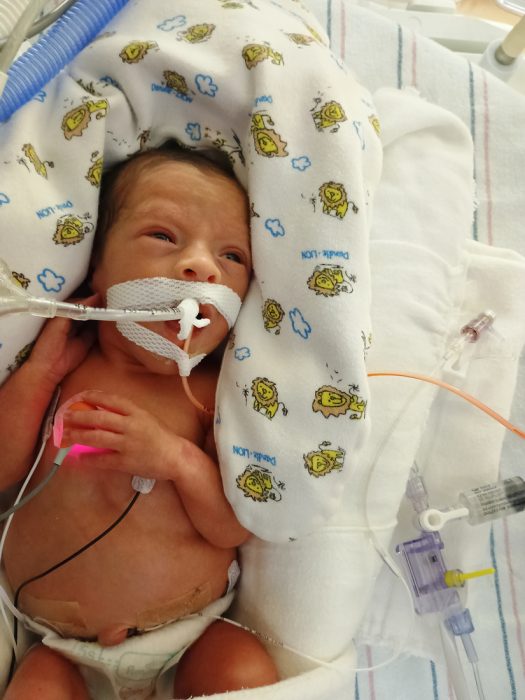
Courtesy Banner-University Medical Center
“We just imagine taking them home, playing in the grass with them and our other children—just being a normal family again,“ Rachel told ABC 15 Arizona.
The couple hopes their story inspires other families to seek second opinions when faced with medical complications.
“You are your child’s protector and advocate,” Rachel said. “Always explore new options if you’re dealing with challenges in pregnancy.”
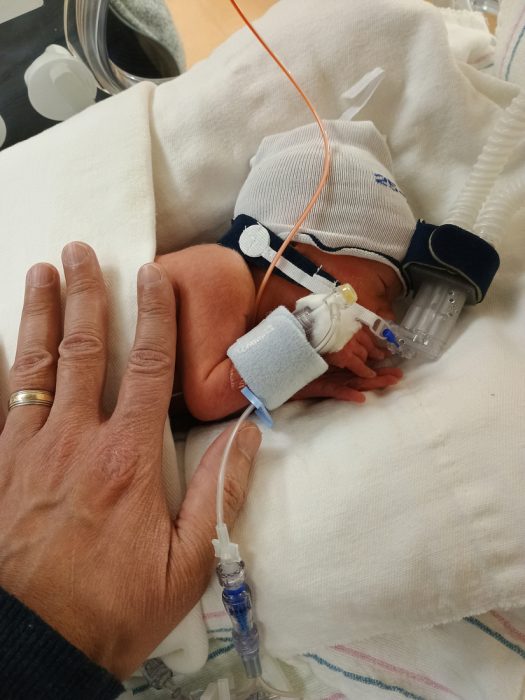
Courtesy Banner-University Medical Center
They are also forever grateful to the medical team at Banner–University Medical Center Phoenix.
“We’re eager to get back home soon and begin this new part of our lives with our growing family,” Marco said. “It certainly hasn’t been an easy journey, but we’re so grateful for the realistic yet positive attitude that Dr. Elliott instilled in us, as well as the stellar care from all of the teams who have helped us at Banner.”
The Vargas family is now settling into life with their six children, and while they’re focused on their growing family, they’re also open to the idea of having more children in the future.
“Once it’s safe, we’d definitely consider it,” Rachel said.

